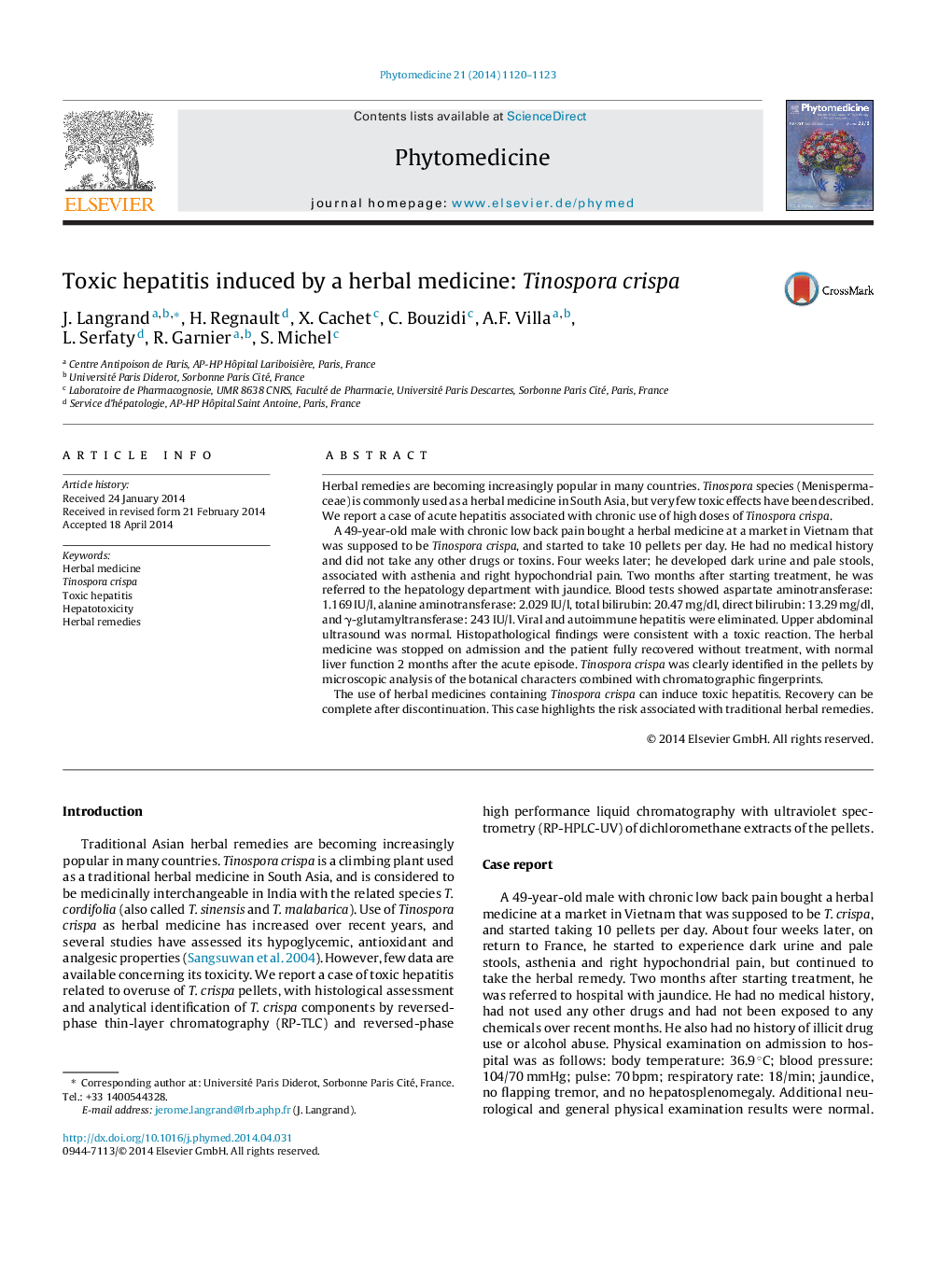| Article ID | Journal | Published Year | Pages | File Type |
|---|---|---|---|---|
| 5816401 | Phytomedicine | 2014 | 4 Pages |
Herbal remedies are becoming increasingly popular in many countries. Tinospora species (Menispermaceae) is commonly used as a herbal medicine in South Asia, but very few toxic effects have been described. We report a case of acute hepatitis associated with chronic use of high doses of Tinospora crispa.A 49-year-old male with chronic low back pain bought a herbal medicine at a market in Vietnam that was supposed to be Tinospora crispa, and started to take 10 pellets per day. He had no medical history and did not take any other drugs or toxins. Four weeks later; he developed dark urine and pale stools, associated with asthenia and right hypochondrial pain. Two months after starting treatment, he was referred to the hepatology department with jaundice. Blood tests showed aspartate aminotransferase: 1.169 IU/l, alanine aminotransferase: 2.029 IU/l, total bilirubin: 20.47 mg/dl, direct bilirubin: 13.29 mg/dl, and γ-glutamyltransferase: 243 IU/l. Viral and autoimmune hepatitis were eliminated. Upper abdominal ultrasound was normal. Histopathological findings were consistent with a toxic reaction. The herbal medicine was stopped on admission and the patient fully recovered without treatment, with normal liver function 2 months after the acute episode. Tinospora crispa was clearly identified in the pellets by microscopic analysis of the botanical characters combined with chromatographic fingerprints.The use of herbal medicines containing Tinospora crispa can induce toxic hepatitis. Recovery can be complete after discontinuation. This case highlights the risk associated with traditional herbal remedies.
Graphical abstractDownload high-res image (130KB)Download full-size image
